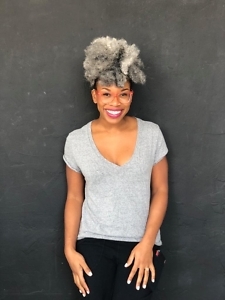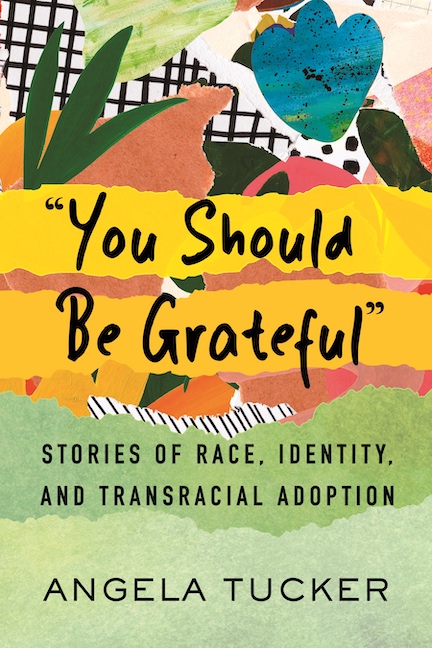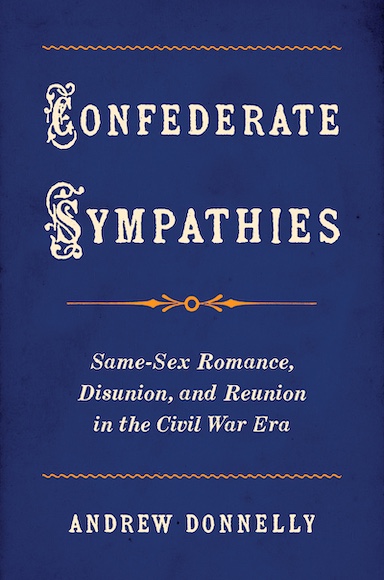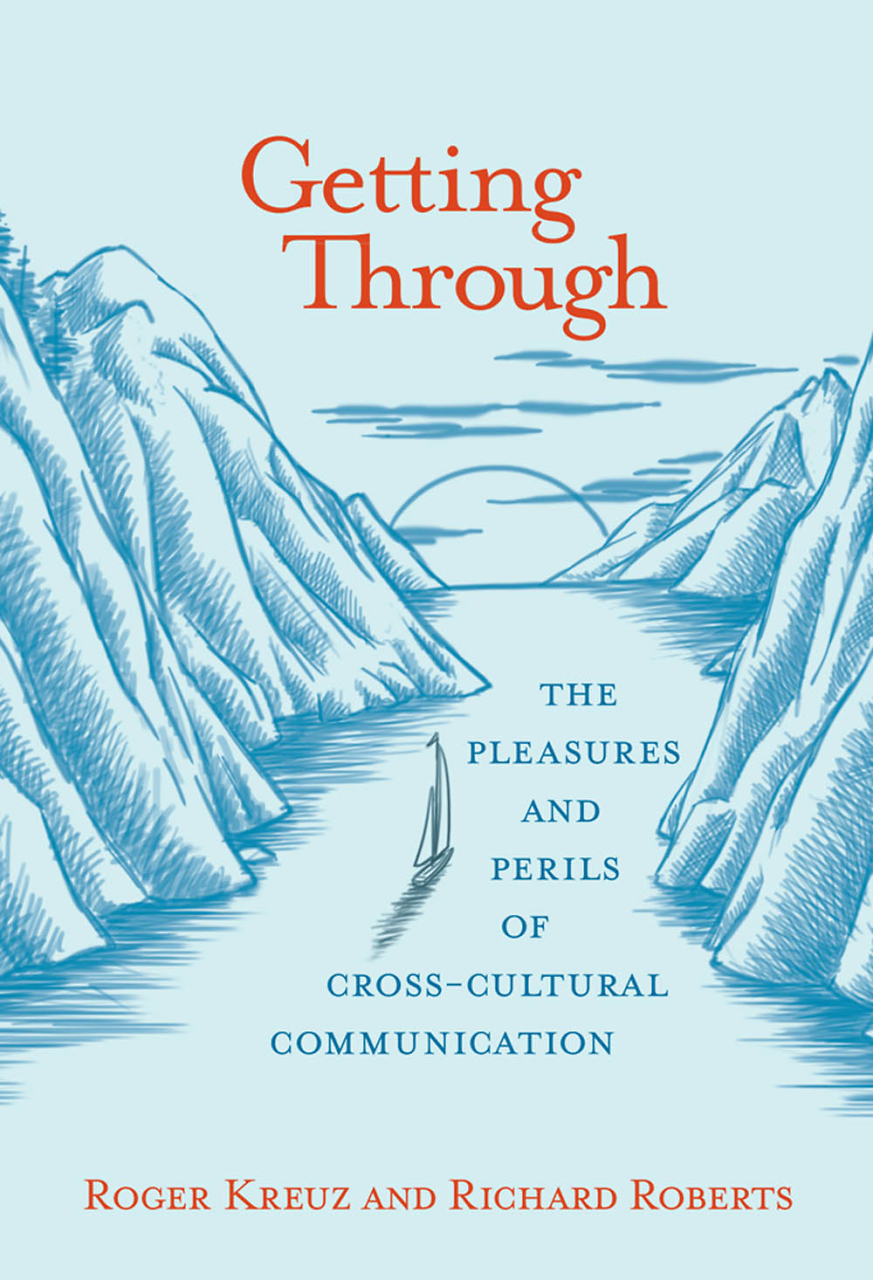After the Breakup
NYT-bestselling author Marisa de los Santos talks with Chapter 16 about love and friendship in her new novel
Romantic love gets all the sonnets, but true friendship can be more passionate, more enduring, and more excruciating to lose. In Falling Together,
her third novel, New York Times bestselling author Marisa de los Santos charts the post-friendship course of Pen, Will, and Cat, who met in college and quickly became inseparable. When the three part ways, violently and inexorably, it’s with all the anguish that usually attends a romantic breakup. The novel begins six years after their estrangement, when Pen and Will receive identical emails from Cat: “I know it’s been forever, but I need you. Please come to the reunion. I’ll find you there. I’m sorry for everything.” Suddenly it’s as if the years separating them never occurred—though the suspense surrounding the reunion neatly carries the reader all the way to the end of the book.
As she did in her first two novels (Love Walked In and Belong To Me), de los Santos carefully explores the nuances of every type of love—filial, familial, and romantic—and her “skill with characterization brings this engaging novel to life,” as Romantic Times notes. She answered questions from Chapter 16 via email prior to her appearance at the Southern Festival of Books:
Chapter 16: Your books take seriously the notion that, as Pen says in Falling Together, friendship is “as big a deal as falling in love.” And unlike much other contemporary fiction, your books also describe friendship between men and women—emotionally intimate relationships that in other books tends to be exclusively the domain of female friends. Do you believe that men and women can be genuinely intimate friends without giving way to sexual attraction?
de los Santos: The easy answer is yes, although, usually, I don’t think there’s anything easy about it, and I don’t think it happens that often. There are just so many social pressures and expectations at play that the idea of a man and woman forging a relationship of long-term intimacy and trust that doesn’t involve sex or romance can seem almost unreasonable. You like him, he likes you, you don’t find each other physically repulsive (and how many of us find people we honestly love physically repulsive?), so why wouldn’t you date?
The male/female friendships I’ve seen work often involve a mutual act of will, even a conscious pact: “I will not even entertain the possibility of being physically attracted to you, if you promise to do the same. Deal?” Some of these friendships experience a kind of sexual hiccup at some point, but if both people decide that it isn’t really what they want, that they’re best off as friends, I think the friendship can survive the hiccup. Still, that’s a fairly big “if.” However, as I am lucky enough to know, if a man and a woman can swing it, can beat the odds and be true, lasting friends, the payoff can be enormous.
Chapter 16: There’s an old-fashioned quality to much of your writing: you linger over descriptions, you structure your sentences carefully and clearly, and your characters themselves often seem as if they would be equally at home in, say, a novel written in the late nineteenth-century. Are there any writers in literary history that you overtly seek to emulate?
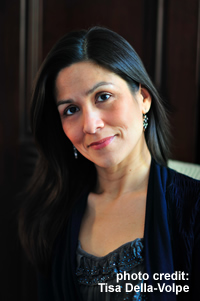 de los Santos: No, not overtly, mainly because when I’m writing, I’m only thinking of what will serve the story and the characters, what language, what syntax, what kind of narrative rhythm will work best. I don’t think I could do that honestly if I were asking myself, What would Henry James do? Or, How would George Eliot structure this paragraph? But I love the writers I love, and I have read their books over and over, and I have no doubt that this affects my decision-making as a writer all the time.
de los Santos: No, not overtly, mainly because when I’m writing, I’m only thinking of what will serve the story and the characters, what language, what syntax, what kind of narrative rhythm will work best. I don’t think I could do that honestly if I were asking myself, What would Henry James do? Or, How would George Eliot structure this paragraph? But I love the writers I love, and I have read their books over and over, and I have no doubt that this affects my decision-making as a writer all the time.
As a reader, I’m drawn to clarity and precision; I am a fan of the long sentence, as long as the rhythm doesn’t become monotonous. Possibly from reading lots of James, I like syntax that tries to contain subtleties and contradictions, so I end up using a lot of dashes and parentheses and commas. I love a really vivid metaphor if it deepens the story and isn’t just ornamental. Fitzgerald is full of figurative language that really startles; so is Barbara Kingsolver; so is the children’s book author Elizabeth Enright. I love when writing goes out on a bit of a limb, takes an emotional risk. E.M. Forster does this with magnificent results. Mostly, I want characters to be complicated and alive. The writers whose work I am most addicted to make this seem effortless: Ann Patchett, Haven Kimmel, Kingsolver, Forster, James.
Chapter 16: You were a published poet before you became a novelist, but in a 2006 interview you explained that you found yourself able to “exalt in moving around the big, open space of a novel.” Now that you’ve written three novels, are you ever tempted to re-confine yourself, as it were, to writing poetry again?
de los Santos: Because I love poetry, I would like to be able to say that I continue to write poems or that I plan to go back to writing poems, but I really can’t. The truth is that since I began writing the first novel, I have not written a single poem. I’m surprised by this, still, because I never imagined that I would be a person who didn’t write poems. I never meant to switch teams! I thought I would do both, but somehow, it hasn’t happened.
Partly, it’s because I’ve had—and still have—books under contract, and I am a good multi-tasker in all things except for writing. But I think that, more than anything, I don’t write discrete poems because I have found that most of the things that thrilled me about writing poems are part of the novel-writing process. That big, open space incorporates smaller spaces—moments, sentences, paragraphs, the kind of small spaces and small moments that put pressure on every single word. When I was writing about the Philippines in Falling Together, for instance, I would find myself wanting to evoke something intense about a rice field or a child in a boat or a piece of fruit or a tarsier, and I would have to try to create these shapely paragraphs that felt a lot like poems to me: distilled, dense, music-rich, image-rich. They didn’t have rhyme schemes and probably didn’t quite fall into iambic pentameter (and I do miss writing in strict form), but I suppose that they felt to me close enough to poetry to scratch my poetry-writing itch.
Chapter 16: Looking back, do you see any ways in which writing poems prepared you to write fiction, or do you feel the two are completely separate arts? Has writing fiction, in turn, taught you anything about writing poetry?
de los Santos: When it comes to the actual putting-words-down part of writing a novel, my process is pretty much the same as it was when I wrote poems. I write a sentence and work with it until it feels right to me, and then I write another sentence and do the same thing. And so on. It might seem like a slow and somewhat impractical way to write four hundred pages, but it’s the only way I know how to write. I can’t put in place holders or jump ahead or just get the story out there in a rough form and then go back and fine-tune, even though these tactics make sense to me. One sentence grows organically out of the sentence before, and eventually, the story takes shape. It doesn’t mean I don’t go back and revise because of course I do. But my method is my method.
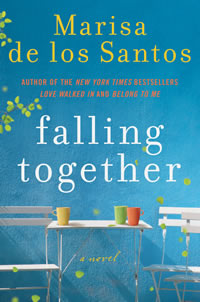 Another way I feel the influence of poetry is that I am very aware of the words as sounds, apart from their meanings. If a paragraph isn’t working, I look first at the music of it—the rhythm, the ways the vowel and consonant sounds are bouncing off each other. I’ve been known to bonk myself on the forehead and say things like, “Ack! No wonder it’s awful! Look at all those short vowels in a row!”
Another way I feel the influence of poetry is that I am very aware of the words as sounds, apart from their meanings. If a paragraph isn’t working, I look first at the music of it—the rhythm, the ways the vowel and consonant sounds are bouncing off each other. I’ve been known to bonk myself on the forehead and say things like, “Ack! No wonder it’s awful! Look at all those short vowels in a row!”
Chapter 16: You clearly have a penchant for romantic, old-fashioned names: Cornelia, Clare, and Teo, for starters. Yet the protagonists of Falling Together go by Pen, Will, and Cat. What inspired you, this time, to adopt such jaunty nicknames for your characters?
de los Santos: I love names and naming. When I was about six, I started collecting names, making lists, grouping them into different categories, like “Names for Smart People” and “Names for Mysterious People.” As a writer, the name is one of the very first things I know about a character, and it’s so important to me that the characters have names that belong to them. I didn’t consciously plan to give all the major characters in Falling Together those short, jaunty nicknames; it sort of happened to each character individually and for different reasons. As Pen tells Damon Callas at one point, she was named after Penelope Lapham, the older daughter in William Dean Howells’s The Rise of Silas Lapham, a novel and a character I happen to like a lot. That Penelope is smart and funny and lonely, and, for complicated reasons, she tries to suppress her feelings for the man she loves. Her nickname is Pen. Of course, there’s also the Penelope from Homer’s Odyssey, the faithful character, the one who gets left, the one who waits. But that was sort of a happy accident.
Will was just a name that struck me as right. I’ve been attached to that name since graduate school when I read Piers Plowman, a story about a journey. I also like it that Will is a word that has to do with acting and deciding. And Cat’s name actually involved a bit of recycling. Catalina was the original name of Clare’s mother in my first novel, Love Walked In, but there got to be too many C-names in that book, so with great reluctance, I changed it. Interestingly, that Catalina was never called Cat; calling her that would have made no sense at all. But Catalina Ocampo in Falling Together is such a Cat; she’s small and snappy and has made a kind of career out of adorableness.
Chapter 16: Can you talk a little about your father’s family and your trips to Cebu City in the Philippines, which you visited for the first time as an adult? Did you intend for the Philippines to function almost as a kind of minor character in Falling Together?
de los Santos: At any time in my career, I would’ve jumped at the chance to write about the Philippines, but the narratives just never took me in that direction. It’s a very important place for me. My father grew up in Cebu City, but my sister and I were born here, and it wasn’t until I was in my twenties that I traveled to Cebu for the first time. Since then, though, I’ve been back many times. My parents ended up moving there after my dad retired, so we take the kids every other year.
I think everyone has internal landscapes, private homes that we carry around inside of us. Charlottesville, Philadelphia, and Wilmington are all part of mine, and every time we go to the Philippines, I internalize more of it. It’s a country of extremes: extreme gorgeousness, rampant blossoming, warm generosity, fruit and bread and fish so delicious you wish you could eat nothing else for the rest of your life, and also extreme poverty, heartbreaking poverty. It’s also a place where I discovered a whole branch of my family that I’d only seen in glimpses before, and in discovering that family, I also gained new understandings about my dad. Everything deepened. I hope it functions as a character in Falling Together. I meant for it to. I worked so hard on the language in that part of the book in an effort to evoke some of what makes the place extraordinary. It was difficult, humbling work, and I was grateful to get to do it. I hope I brought the place to life for readers, at least a little.
Marisa de los Santos will appear at the 2011 Southern Festival of Books, held October 14-16 in Nashville. All events are free and open to the public.
